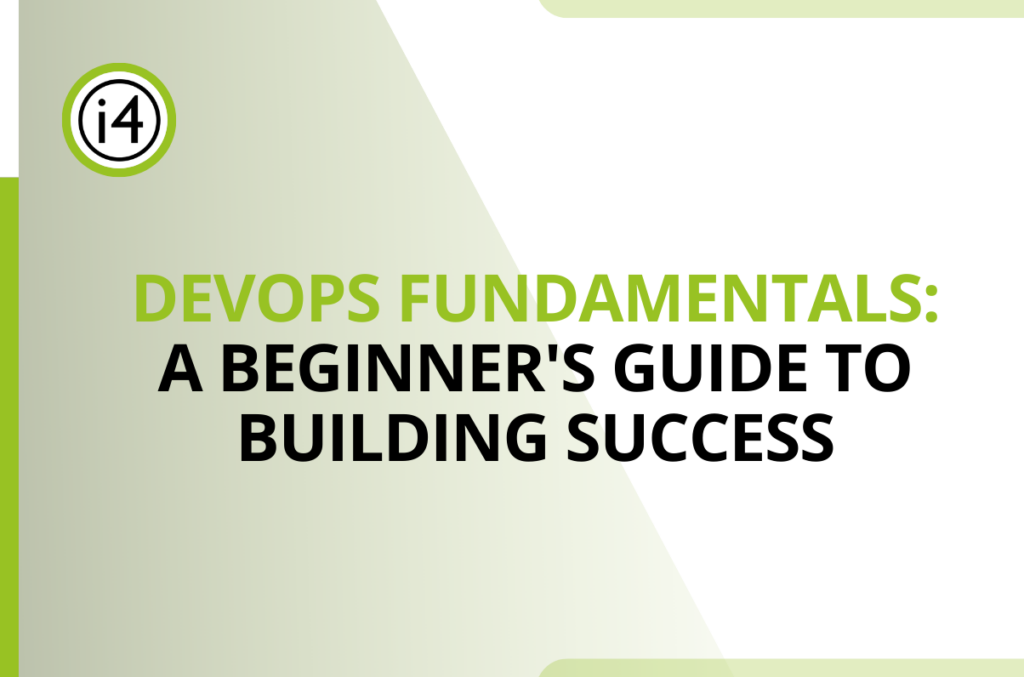DevOps is a helpful way to deal with developing programming. It aims to simplify the delivery lifecycle as a whole. The terms “development” and “operations” are combined in the term “DevOps.” It advances a culture of collaboration, correspondence, and steady reconciliation. This is accomplished by removing traditional barriers that separate development and IT tasks.
The foundations of DevOps are vital in the universe of programming advancement. Going about as a connection between the turn of events and task groups guarantees the work process moves along as expected and effectively. DevOps practice expertise and abbreviate discharge cycles.
In addition, they guarantee the product’s flawless development, shipping, and upkeep. This mix of advancement and exercises brings about expanded coordinated effort, more limited show times, and further development in general programming quality.
Read on to learn more!
What Is DevOps Foundation?
DevOps Foundation is a set of practices and principles to improve collaboration and communication between software development (Dev) and IT operations (Ops) teams. It focuses on streamlining the software delivery process, making it more efficient and responsive. DevOps emphasizes automation, allowing for faster and more reliable development and deployment of software. By fostering a culture of collaboration and shared responsibility, DevOps aims to break down silos between development and operations, leading to better-quality software and quicker delivery to users. It’s a foundation for creating a more agile and responsive development environment.

Essential Standards of DevOps
DevOps relies on teamwork and is an essential part of the process. It connects progress, tasks, and partners during development. The foundations of DevOps promote communication and collaboration. This helps everyone agree, leading to quicker problem-solving, more progress, and a unified approach to reaching goals.
- Automation
Motorization is a key part of DevOps. It aims to streamline repetitive tasks, reduce manual errors, and speed up improvement. Through robotization, designers and action gatherings can focus on extra crucial and creative pieces of their work. Routine cycles are executed gainfully. This rule improves efficiency, overall consistency, and high quality of programming arrangements.
- Continuous Improvement
DevOps promotes Continuous Improvement DevOps continuous integration. It involves frequently incorporating code changes into a shared repository. This makes it conceivable to get reconciliation issues early, guaranteeing the product can constantly be utilized by understanding the foundations of DevOps. Persistence results in a more cooperative improvement cycle. It runs more smoothly when the form and testing processes are computerized.
- Consistent Conveyance
By computerizing the entire delivery process, constant Conveyance expands upon a consistent mix. It ensures that products can continuously be conveyed and shipped off creation on time. Because of this rule, associations can convey new highlights and updates to end clients more rapidly and dependably, which lessens the work and time expected for sending.
- Persistent Checking
DevOps stresses the meaning of persistent checking and inputs throughout the product advancement lifecycle. I noticed license gatherings to gain encounters in application execution. I wanted to separate issues early and seek data-driven decisions. Input circles make it possible to make iterative changes so groups can change and improve their cycles based on how well they are used and work. They give us an understanding of “what are the components of DevOps.” This standard contributes to a more client-driven and responsive approach to programming enhancements and tasks.

Components of DevOps Version Control
Essential for developing cooperative programming, allowing for proficient code management and follow-up. It uses Git, Interruption, or Unpredictable to join repositories. This allows for consistent participation and tracking of changes.
- Perpetual Coordination Devices
Perpetual Coordination Devices coordinate numerous supporters’ code changes into a common storehouse. Notable CI instruments like Jenkins, Travis CI, and GitLab CI/Plate work with modernized development and testing. They propel a consistent and trustworthy codebase.
- Instruments for Constant Arrangement
Extends CI by automating software release and deployment to production environments. Instruments like Ansible, Puppet, and Kubernetes automate game planning, sending, and scaling. They ensure consistent and screw-up-free updates for end clients.
Courses of Action
Improve the organization and appropriation of utilization and structure plans. The organization utilizes devices like Cook, Manikin, and Ansible to robotize plans and backing. Consistent IaC practices will benefit from this.
Essential for continuously incorporating knowledge into the application and framework execution are the instruments for checking. In the foundations of the DevOps analysis community, stages like Nagios, Prometheus, and Splunk provide transparency to estimates, logs, and cautions, facilitating proactive issue identification and data-driven decision-making.
DevOps Foundation Certification
To prevail in DevOps Foundation Certification, it’s vital to have solid basic information. DevOps practices and instruments are continuously changing, so it’s useful to have specialists who can explore these intricate turns of events.
Personal skills can be enhanced, and cross-functional teams can benefit from a solid understanding of the foundations of DevOps. Its training is a smart investment that keeps individuals and businesses ahead of the competition in the technology sector.

An Outline of the “Foundations of DevOps” Courses
The “Foundations of DevOps” courses give a coordinated and intensive prologue to the main DevOps thoughts, standards, and practices. Collaboration, computerization, continuous delivery, seamless coordination, and the social aspects of DevOps are all covered in these courses.
Methods of reasoning that combine progress and task groups are taught to individuals. Courses like “Foundations of DevOps” are meant to help both novices just starting in the field. They also help seasoned professionals who want to learn how to interpret DevOps exercises.
Benefits of the DevOps Establishment Certificate Market
The foundations of DevOps certificate make individuals more attractive in a severe work market. It aligns with industry principles.
- Acceptance of Capabilities — is a critical underwriting of DevOps information and abilities. It makes people feel good about themselves and grateful.
- Leadership — Specialists who use DevOps consistently accomplish more in their professions. They are more prepared to assume leadership roles within their organizations and have more opportunities for professional success.
- Teamwork —The declaration advances viable joint effort by encouraging a common perspective of cross-utilitarian DevOps.
Basics for DevOps Establishment Verification
The DevOps Establishment Statement’s prerequisites incorporate attending instructive classes and breezing through the attestation assessment. Foundations of DevOps concepts, tools, and social facets are covered in these instructive courses. They get people ready for the evaluation. Acquiring affirmation is fundamental for experts. It contributes to their associations and helps them succeed in their careers. DevOps has a significant impact on the outcomes of programming tasks and development.

Tips for Newcomers to Adopting DevOps Practices
Here are a few pointers that can make the transition to the DevOps world and understanding the Foundations of DevOps much easier for newcomers:
- Begin Little
Execute DevOps rehearses on a limited scale. Then, at that point, reliably grow them as the group acquires certainty and experience.
- Accept Automation
DevOps is all about mechanization. Embrace gadgets that automate dreary tasks. This allows groups to focus on more important aspects of their work.
- Support collaboration
Enable open correspondence and facilitated endeavors between progress, exercises, and various accomplices. The outcome of DevOps depends vigorously on shared goals and valuable collaboration.
- Continuous Training
DevOps is dynamic, and relentless learning is essential. Stay invigorated on new devices, practices, and industry examples to improve and change incessantly.
- Circle of Input
Spread out huge solid areas for a circle to perceive locales for improvement. Follow up to enter quickly to develop processes further and convey regard even more capably.
Mastering DevOps Essentials: Elevate Your Skills with Cyber Agility Academy
Are you ready to enter DevOps and establish a strong starting point for progress? Get the basic foundations of DevOps training at Cyber Agility Academy. You can access thorough planning modules. They’ll equip you with the essential knowledge and skills needed in the DevOps scene.
The Bottom Line
DevOps is a special way of doing things that has greatly impacted how software is created, delivered, and cared for. By bringing together development and operations, using automation, and encouraging teamwork, DevOps has become an important foundation for making technology more agile, reliable, and efficient. As we finish exploring the foundations of DevOps, it’s important to note that the journey doesn’t end here. DevOps is an evolving field that requires ongoing learning. No matter your skill level, if you’re committed to getting better and embracing the core principles of DevOps, you’ll be set for success. Stay open-minded, keep learning, and explore the full potential of what DevOps can achieve in software development and beyond.

